
Associate Professor @DanaFarber @harvardmed @broadinstitute - clinical computational oncology! Prev.: @Stanford @UCLA @UCSF | Discl.: https://t.co/XkFZSwuBsP
How to get URL link on X (Twitter) App





https://twitter.com/tmprowell/status/1273043390716948483)
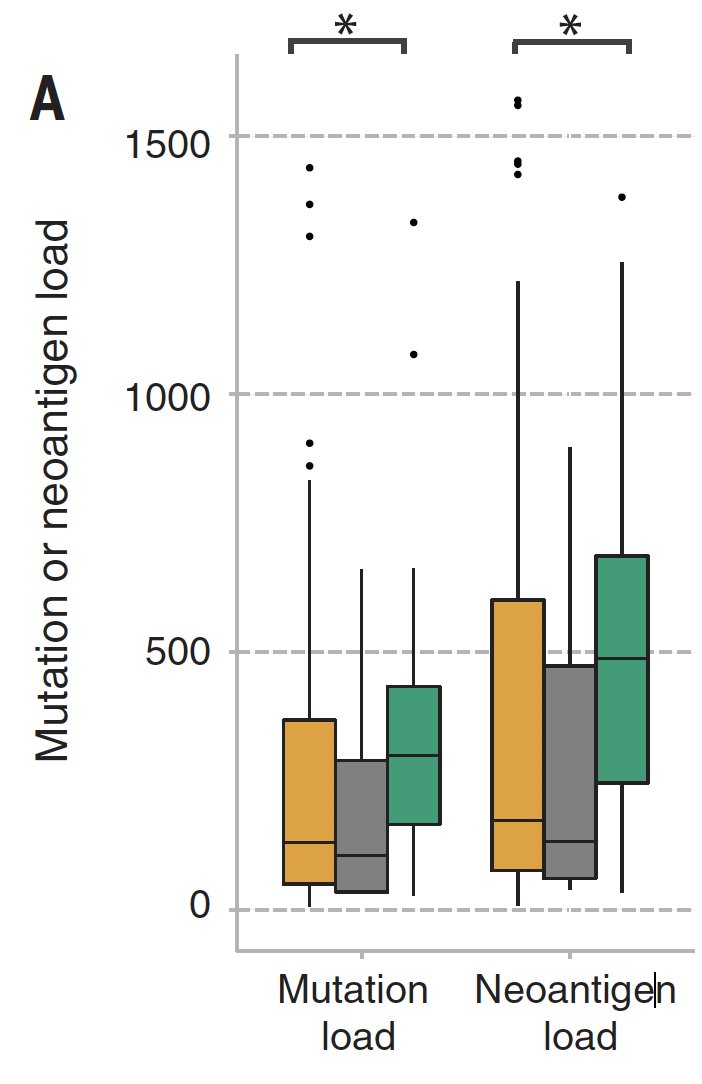

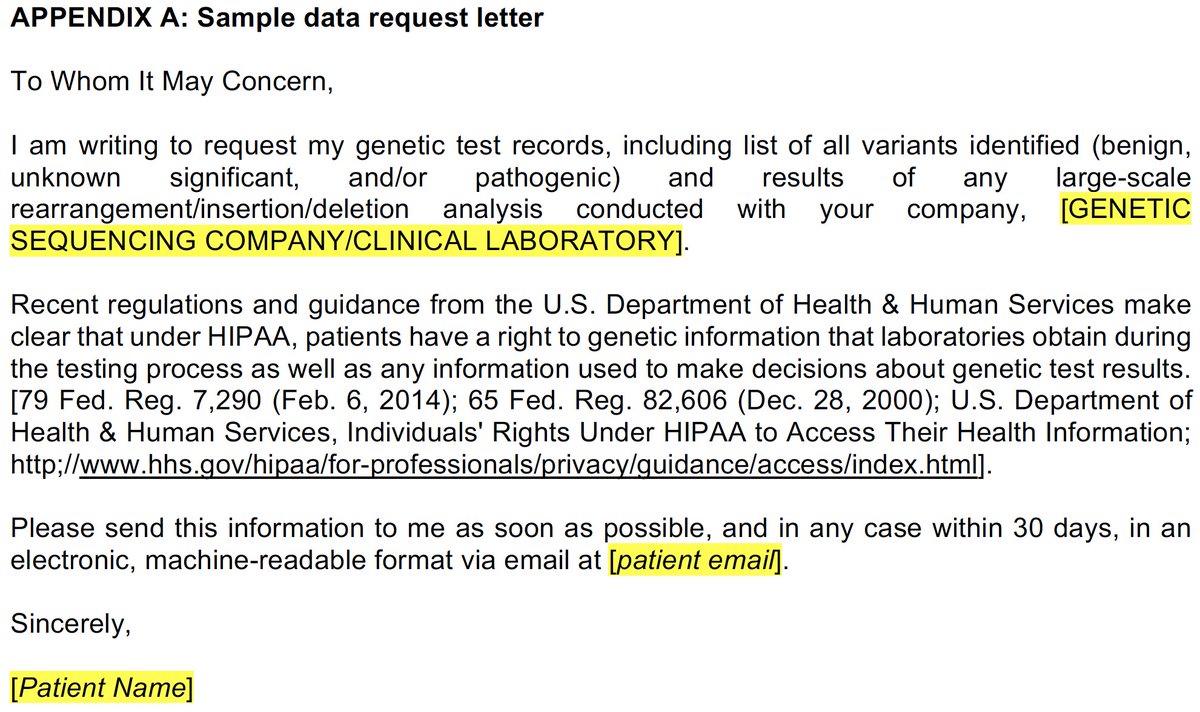
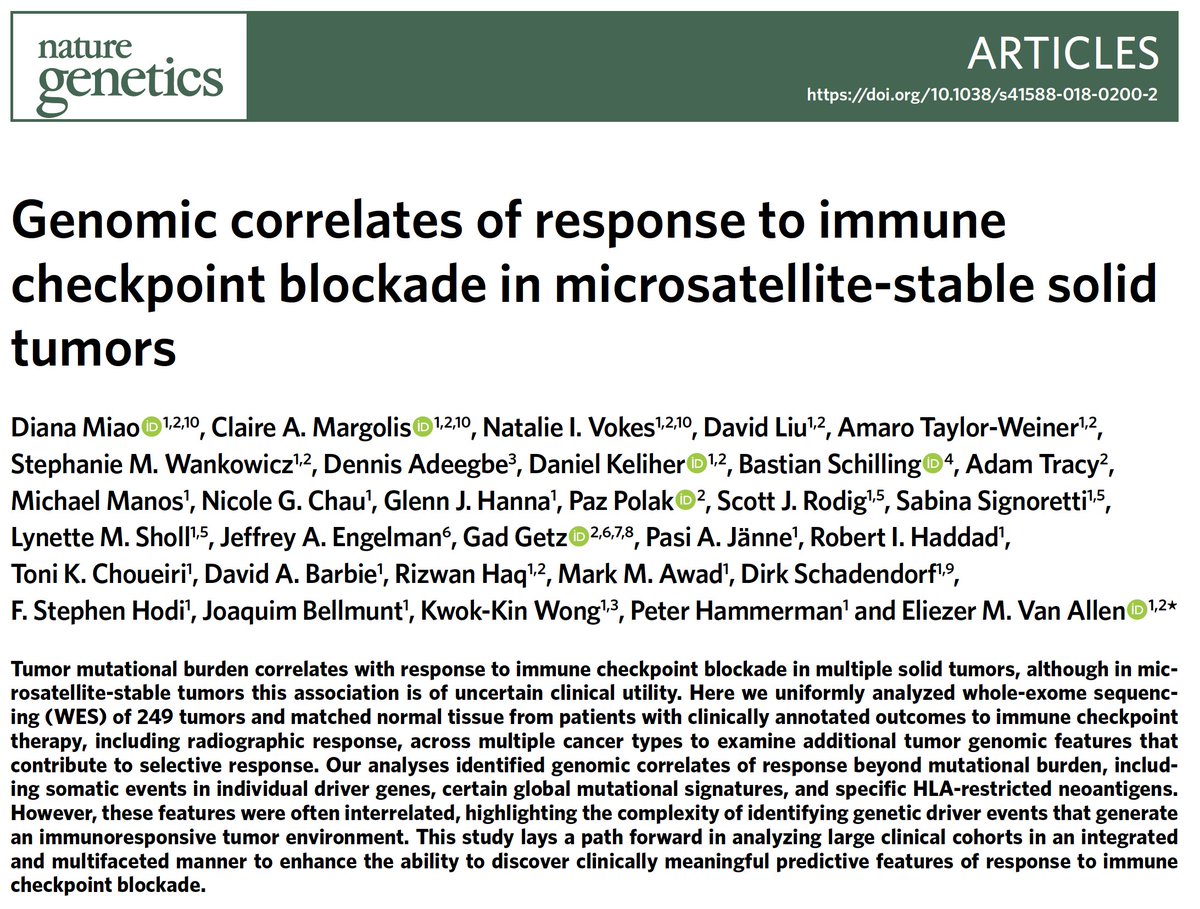
 We analyzed every tumor-normal exome from patients getting immune checkpoint blockade (ICB) we could get & integrated w/ clinical outcomes for biological and clinical exploration → lots of technical pain here + open questions re: defining clinical benefit
We analyzed every tumor-normal exome from patients getting immune checkpoint blockade (ICB) we could get & integrated w/ clinical outcomes for biological and clinical exploration → lots of technical pain here + open questions re: defining clinical benefit 

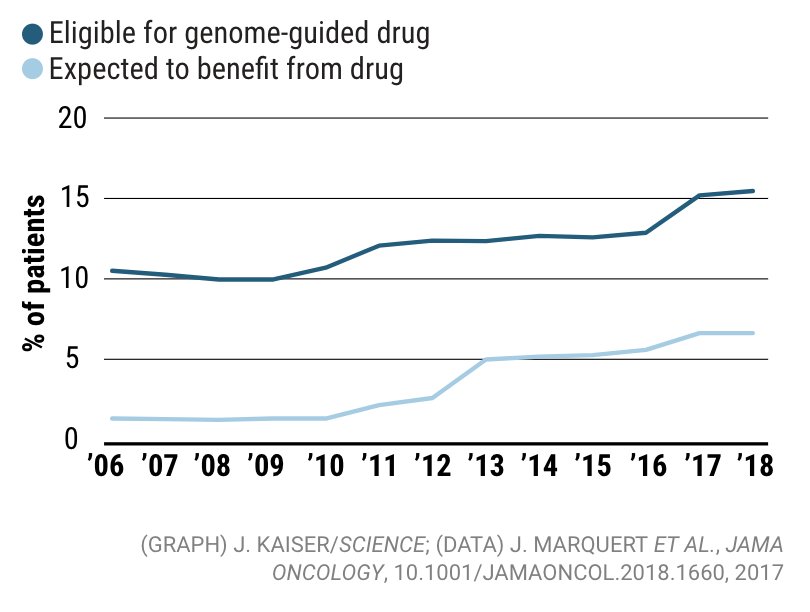
External Tweet loading...
If nothing shows, it may have been deleted
by @DHymanMD view original on Twitter
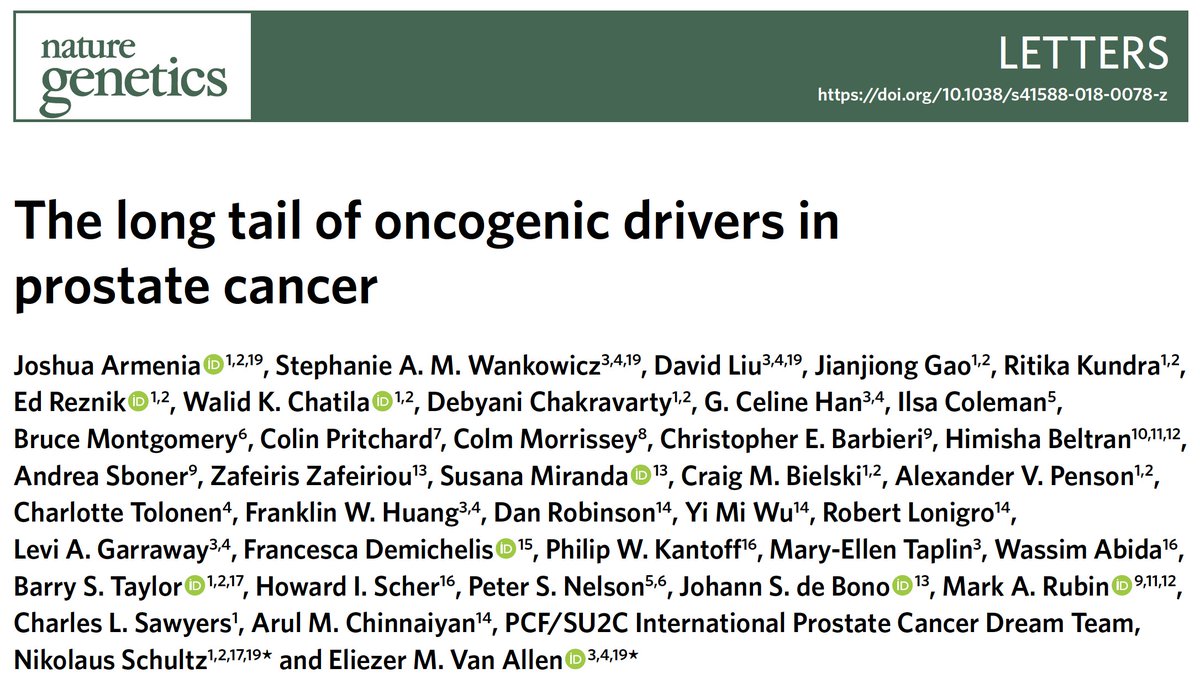
 I've been lucky to grow up academically around many #prostatecancer scientific 'big machers' & helped with early cancer genomic maps over the last 5+ years, e.g.:
I've been lucky to grow up academically around many #prostatecancer scientific 'big machers' & helped with early cancer genomic maps over the last 5+ years, e.g.: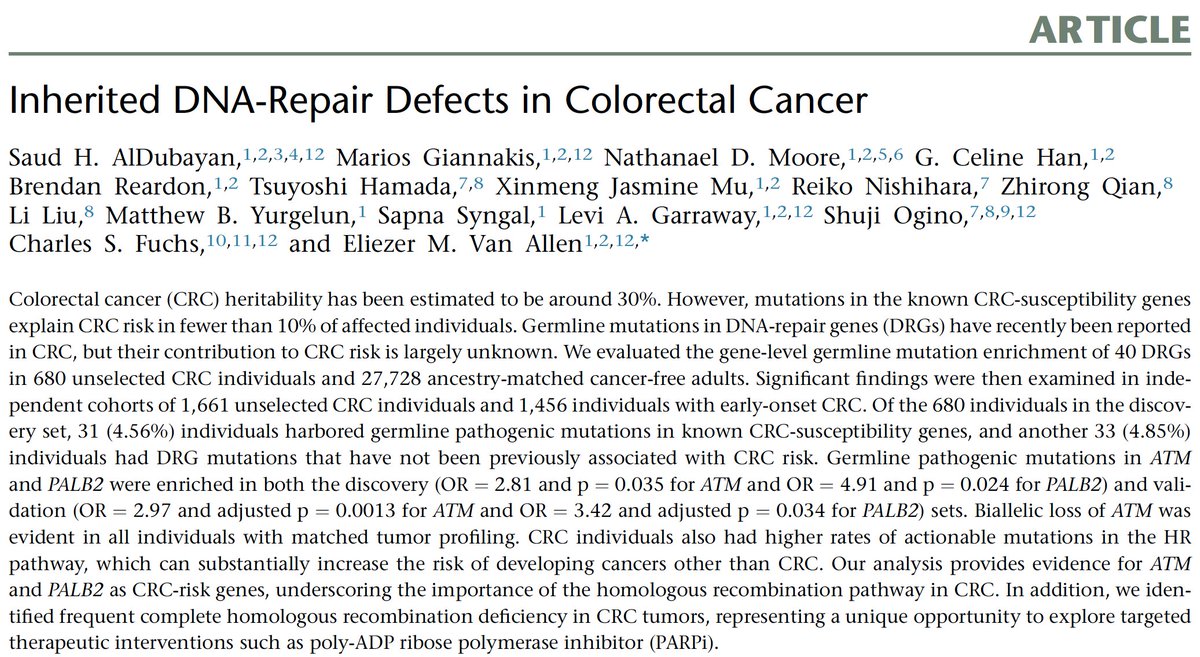
 There’s an established heritability for colorectal cancer hovering around 30%, though only roughly 5-10% is explained by known syndromes involving genes like APC, MSH2, and PTEN, among others – the rest is so-called “missing heritability”
There’s an established heritability for colorectal cancer hovering around 30%, though only roughly 5-10% is explained by known syndromes involving genes like APC, MSH2, and PTEN, among others – the rest is so-called “missing heritability” 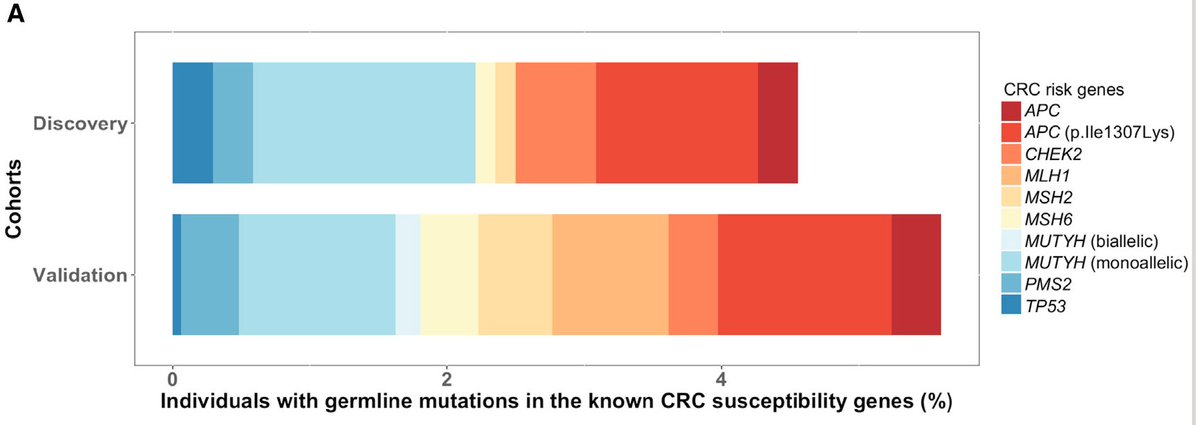


 First, the kidney cancer immunogenomics study: This tumor type has response rates to anti-PD-1 immunotherapy similar to other cancers, but not the same tumor genetics, e.g. mediocre mutational load, no focal amplification of PDL1
First, the kidney cancer immunogenomics study: This tumor type has response rates to anti-PD-1 immunotherapy similar to other cancers, but not the same tumor genetics, e.g. mediocre mutational load, no focal amplification of PDL1 